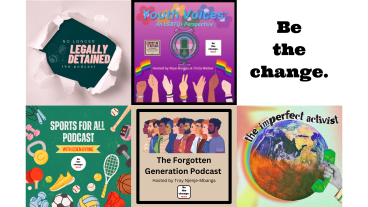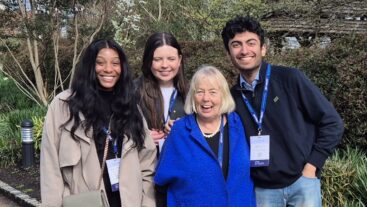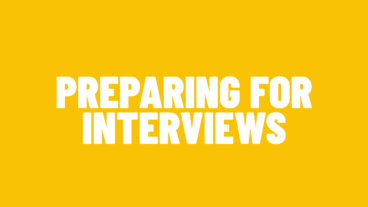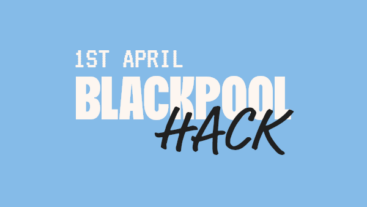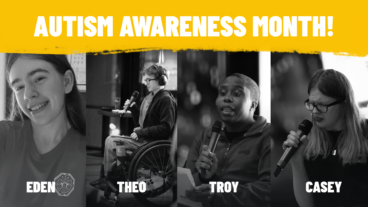4 June 2020
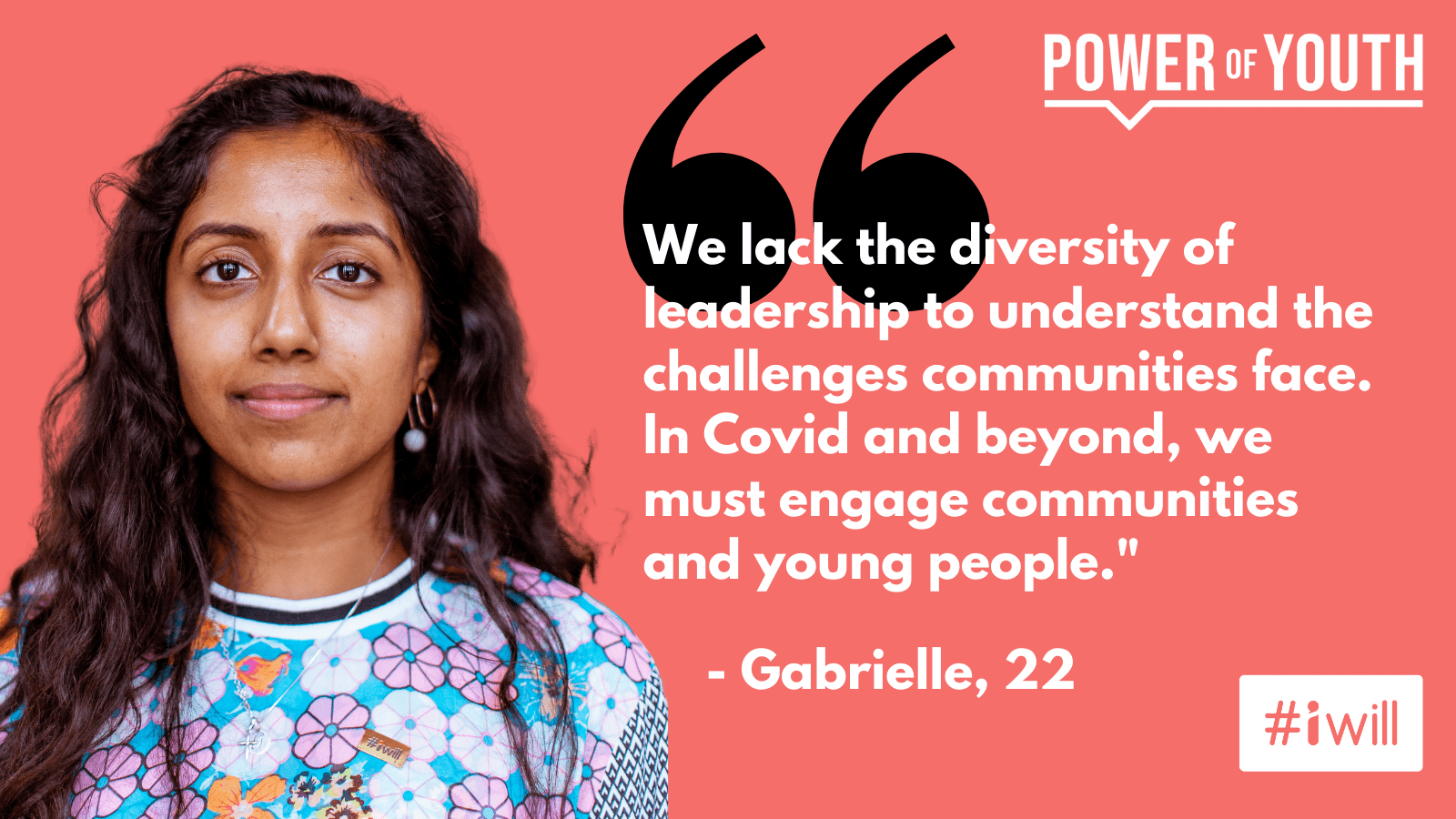
The coronavirus pandemic has exposed our health inequalities – but what can the NHS do to work with communities and young people?
#iwill Ambassador Gabrielle Mathews has seen all sides of the NHS. She has been a long-term patient, a medical student, a Youth Forum Member, a volunteer, and now sits on the NHS Assembly. In this challenging blog, she reflects on why community and youth engagement is so important, and considers how engagement can be most successful.
My journey in Health
As an NHS Assembly member, it is important to me that we commit to listening to people and communities at this difficult time. It has been a privilege to volunteer in the NHS over the last seven years, to work with staff committed to engagement and to have been able to take part in so many initiatives.
I have been able to work with so many leaders across the health sector – nationally, as an alumni member of the NHS Youth Forum, member of the NHS Assembly and Youth Expert Advisor to the Children and Young People’s Transformation board, and regionally at Birmingham Children’s Hospital and Imperial College NHS Trust.
For me, this work has been transformative, shaping my future career in the NHS and giving me a sense of hope that change can be made. I hope that I have also made an impact in the NHS, effecting change in patient care and national policy on youth participation.
As a member of the NHS Assembly, I am supporting the implementation of the NHS Long Term plan. This long term plan outlines a vision for volunteering and patient voice, including with younger volunteers. The plan also recognizes the #iwill campaign’s role in driving forward youth volunteering in the NHS – something I am proud to see as #iwill Ambassador.
The Covid-19 crisis
In all the work I have done on Covid-19, I have reflected on the need for the NHS to engage with youth and communities. Covid is not a ‘great leveller’. It has exposed the huge divides in our society. Our health is not just a product of genetics or personal choice, but also a product of our environment. Whilst I was aware of the disparities in health outcomes for different racial groups in the NHS, particularly around mortality in childbirth, I was still shocked to see the disproportionate impact of the pandemic on the lives of Black and Asian people. This exemplifies how a monolithic approach to health will fail to serve marginalised groups.
There simply isn’t the diversity in leadership necessary to understand the potential challenges different communities face. Although Covid-19 has made this particularly obvious, it has been true for a long time. A single policy can have very different impacts across diverse communities, and on people of varied ages. This is why it’s important to increase diversity through meaningfully engaging members of these communities as a consistent and key part of developing health policy and strategy.
By engaging diverse young people at this level, we can inspire a generation to believe in the NHS and in time build diversity of leadership.
So how can we engage and involve children and young people? I have reflected on my experiences to draw out key themes. I would challenge those who care about youth engagement (or even those who have never thought about it!) to use these reflections to start considering how they could make this engagement more meaningful.
If you have more time to give, you may want to look into ‘deliberative engagement methodology’, an approach to decision-making that allows participants to consider relevant information from multiple points of view. I have seen this approach work well in a range of settings, and even if you don’t have the resources to fully adopt it, you can incorporate it in less intensive ways.
Themes to consider when planning engagement
Ask & aims
So many well-intentioned individuals ask to hear the experiences or stories of children and young people, but how often do they do so with clear aims or outcomes? What we need is specific asks which link directly and in a meaningful way to the formal outcomes.
Method
There are a whole host of methodologies and tools available that can be used to host discussions – one such example is ‘Liberating Structures’ which can even be accessed through an app. Many organisational plans for engagement end up stagnating in implementation at the ‘first step.’ They may recruit young people for their board, a positive first step, but then go no further in thinking about how engagement and listening can be a daily action.
Hierarchy and Power
Sometimes our best efforts in youth engagement mean just bringing young people to formal rooms of power. We bring them in to speak at a board or present to a room of decision makers, but what does this really do to challenge existing ways of thinking? As a member of the NHS Assembly, to me its greatest value seems to be creating a shared room with no hierarchy. This allows free discussions and liberates individuals to question and challenge without fear, pride, or strict organisational ties.
Fair expectations
True co-production is when you combine your expertise and together find a meaningful solution to an issue faced. When we listen to patients’ experiences and the changes that they would like to see made we should not give unfair expectations. This will most likely result in a disillusioning experience for everyone. Instead, it is the role of professionals to share and educate young people on the wider context and examples of good practice elsewhere, so that we can work together to find achievable solutions. Performing listening, without any ability or intention to make changes, is disrespectful to the person brave enough to share their story.
There is no better time than now to begin these conversations, and to make them as rich and as impactful as possible. There is so much digital technology available, and so much awareness of the impact of healthcare on all our lives. I challenge you to take this moment to connect with young people, with communities, and to hear from new voices.
Read more from Gabrielle, or follow her on Twitter @GabrielleAlphon
